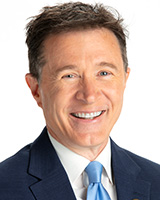Debating possible regulation of drones in California

VAN NUYS, LOS ANGELES (KABC) -- Drones over California: It's the wave of the future and we may eventually have thousands of them. But could these tiny aircraft also invade our privacy?
Drones may be commonplace in the years ahead, and that prompted the first-ever public hearing Friday to look into the benefits and potential problems.
Some call them drones, others call them UAV's: unmanned aerial vehicles. And while they may not be much to look at, the video they shoot certainly can be.
"In the past, we were using boom jibs, full-size real helicopters, which cost a fortune," said UAV operator Jon Tamkin. "What's amazing about the drones is you can do all that at a fraction of the cost."
Tamkin flies drones, shooting video for Hollywood productions. But whether he does it legally is up for debate. The Federal Aviation Authority regulates U.S. airspace, and has not issued any commercial drone permits.
But as video from the company Drone Dudes shows, commercial unmanned aircraft are still being flown.
"I have never seen a law that says we're not operating legally," said Eric Maloney, head of production, Drone Dudes. "There's no written law, and the FAA has openly discussed that that's the case. They have a policy recommendation that currently is unenforceable."
Maloney testified at a California State Assembly Hearing at UCLA.
The State Assembly Select Committee on Privacy is weighing the benefits of drones versus the potential downside -- mainly the invasion of privacy.
"We want to make sure that we address this fear of 'Big Brother' hovering over our head and in our backyards," said state Assemblyman Al Muratsuchi (D-Torrance).
There are also safety issues, including potential collisions with airline traffic. Recently a man crashed a UAV into Yellowstone's Grand Prismatic Hot Spring. And there's the case of the drone knocked down by a crowd outside the Staples Center earlier this year.
The assembly hearing is purely informational at this point as California and other states try to come up with new laws to regulate UAVs.
Meantime, operators like Tamkin hope those laws won't weigh so heavily on his drones that they won't be able to take flight.
"They could really, without thinking, cut a lot of people out and really hurt the economy," said Tamkin.
The Federal Aviation Administration is supposed to come up with a set of drone regulations by September 2015. But the Inspector General's Office did an audit and figured out that the FAA most likely will miss that deadline.











